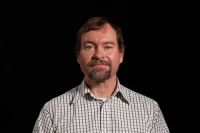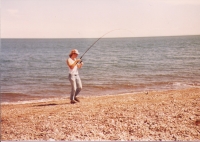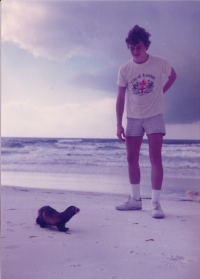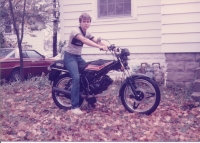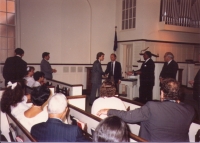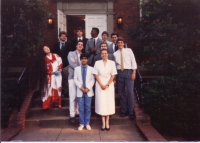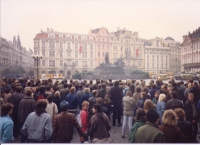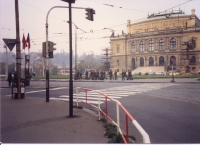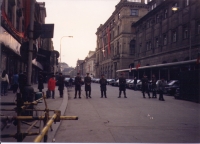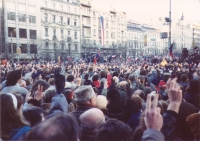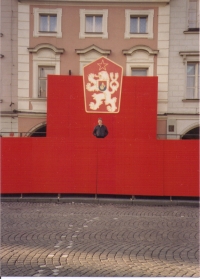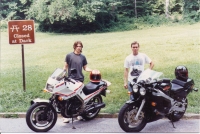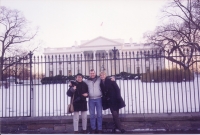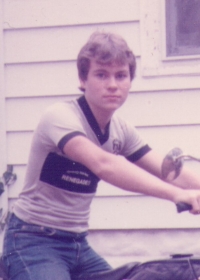Between a world citizen and a homeless man
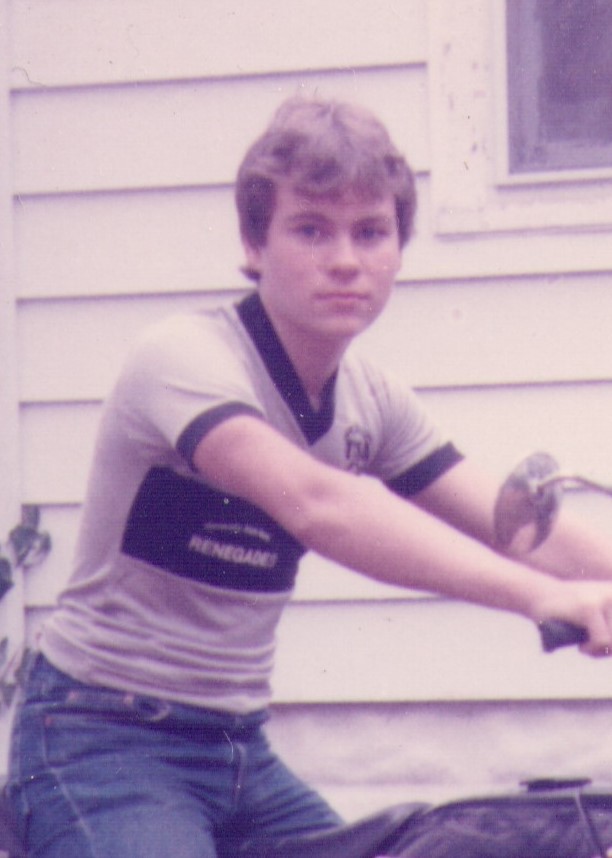
Download image
Lukáš Palec was born on 22 July 1970 in Tábor. His mother was Hana Zora Palcová, a well-known journalist of the Voice of America, his father Miloslav Palec was a painter and lectured at universities in America. In 1979 the family decided to emigrate. The witness did not have valid documents, but they managed to forge them, and the crossing of the border went smoothly. The family eventually reached the USA via Vienna. At school in San Francisco, he encountered ethnic discrimination and racism, which soon brought him problems and even fear for his life. The family moved frequently depending on where the father taught. They lived in Florida, Tampa, Illinois, Washington. When he was about sixteen, his mother started working at the Voice of America. So, they stayed in touch with the Czech development. In 1988, he graduated from high school and started working, then tried to study political science at the University of Iowa, where his father taught, but dropped out. Instead, he took a two-month trip to Europe. He remembers the stark contrast between East and West; everything seemed “broken” in socialist Czechoslovakia, people didn’t smile. Already a year later, things were different, during the revolution he perceived hope for a free and good life. His parents returned permanently from America in 1996, and Lukáš Palec eventually settled here as well. For now, it seems, permanently, at least as long as his two children keep him here. In 2022, he was living in Prague.
